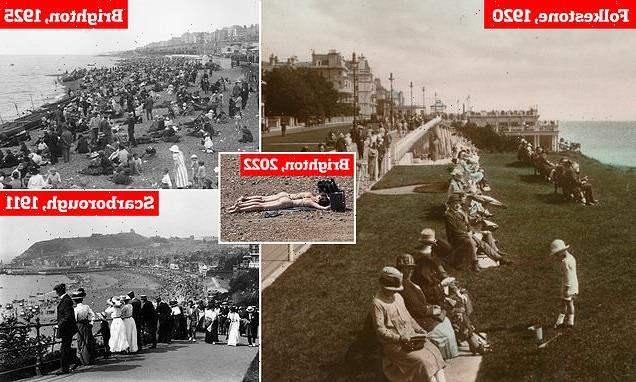Global heat waves are putting the UK and Europe on high alert as countries prepare for record-breaking temperatures.
As residents and businesses draw power to cool off, additional energy usage is expected to put even more stress on the electric grid.
“With regard to electricity generators, they are really in a very tight spot because we are already in a very tight supply environment due to the war in Ukraine, the Russia-Ukraine conflict,” Michel Sznajer, a portfolio manager at Ecofin in London, told Yahoo Finance (video above). “On top of that, we have a situation of very hot weather, very dry weather, and therefore, hydropower is also under pressure in several regions. And that, again, is adding to the tightness on the supply of electricity.”
Only about 5% of UK residential homes have air conditioning, though AC units and fans have been flying off the shelves in recent days. Britain’s grid operator said it would be able to meet the electricity demand as temperatures climb above 100 degrees Fahrenheit.
“At the moment, there hasn’t been any rationing,” Sznajer said. “There hasn’t been any constraint on supply. We have plenty of gas. We know the UK is actually exporting gas to Europe at the moment because we have less storage than Europe, so it’s not unusual for the UK to export gas in the summer and to get gas back in the winter.”
At the same time, higher-than-normal electricity demand in the summer could spell more hardships down the line in the winter by depleting natural gas inventories.
“So we are in the summer, when, typically, we fill storage, especially natural gas storage,” he added. “Unfortunately with the current climate, we’re in a situation where the demand is above expectation, unusually high, and therefore somewhat capping the opportunity to store more and more gas for the winter.”
That not only strains the grid’s ability to match supply and demand but puts pressure on energy costs, which Sznajer said have “increased substantially” for those in Europe.
“We are all seeing, or expect to see, our bill more than double this year,” he said. “So it will have a domino effect on disposable income. The government is stepping in to help the lower-income population, but we would expect if it stays like this, that, ultimately, something needs to happen. Either the government is going to have to intervene to send the price of electricity, or we’ll have to support consumers much more.”
From electricity generation to usage, it’s clear that areas that previously weren’t as prone to extreme heat will need to learn to adapt to a changing climate in order to prevent heat-related illnesses and deaths. Given that the last eight years were the hottest on record, scientists expect heat waves to become more prevalent in the coming years.
There is good news on the power front, according to Sznajer. Solar power generation in the UK reached a record high, though it’s not enough to offset weaknesses in natural gas and hydropower.
“At the end of the day, what the consequence of this is is that you need more renewables, and renewables are cheaper than the alternatives like gas and coal power generation,” he said. “They were cheaper before, despite that we see in prices, so they’re even cheaper now. You’re going to see an acceleration in development of renewables.”
Grace is an assistant editor for Yahoo Finance.
Read the latest news on the climate crisis from Yahoo Finance
Read the latest financial and business news from Yahoo Finance
Follow Yahoo Finance on Twitter, Instagram, YouTube, Facebook, Flipboard, and LinkedIn
Source: Read Full Article



